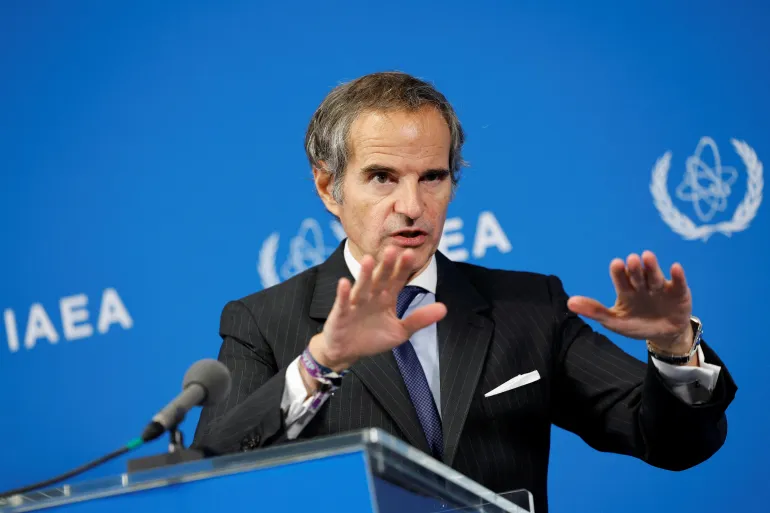
Wafric News – June 12, 2025
The International Atomic Energy Agency (IAEA) has formally accused Iran of breaching its nuclear commitments, sparking a sharp and immediate reaction from Tehran that includes plans to construct a new uranium enrichment site and upgrade key nuclear infrastructure.
The UN nuclear watchdog’s Board of Governors voted Thursday to pass a resolution stating that Iran is not meeting its obligations under international nuclear safeguards. Out of the 35 board members, 19 voted in favour of the resolution, with three — including Russia, China, and Burkina Faso — voting against, and 11 abstaining.
Diplomatic sources confirmed to Wafric News that the resolution highlights Iran’s longstanding failure to explain the presence of uranium particles found at several undeclared sites. The IAEA has reportedly investigated the matter for years without receiving satisfactory answers.
A copy of the resolution, obtained by Reuters, accuses Iran of “many failures since 2019” to provide timely and full cooperation. It deems Tehran in “non-compliance” with its obligations under agreements with the agency.
In a joint statement released shortly after the vote, Iran’s Foreign Ministry and its Atomic Energy Organization (AEOI) denounced the resolution and announced plans to build a new enrichment facility in a “secure location.” The statement warned that further actions would follow.
Additionally, the AEOI revealed on social media platform X that it would begin replacing the current first-generation centrifuges at its Fordow nuclear facility with more advanced sixth-generation models, a move that signals Tehran’s intent to press ahead with its uranium enrichment efforts.
Iran’s state-run Press TV echoed official disapproval, stating the resolution “lacks both technical and legal credibility.”
Reporting from Vienna, journalist Hashem Ahelbarra noted the resolution marks a significant diplomatic milestone — the first time in nearly two decades that the IAEA has formally accused Iran of violating its non-proliferation commitments.
“This puts Iran on notice,” Ahelbarra said. “Without a credible response, Tehran could face severe consequences, including intensified sanctions and deepened global isolation.”
Israel responded swiftly, with its Foreign Ministry calling on the international community to take “decisive action.” Israeli media also reported that Strategic Affairs Minister Ron Dermer and Mossad chief David Barnea are set to meet US Middle East envoy Steve Witkoff ahead of key talks.
Those talks — the sixth round of US-Iran discussions — are scheduled to take place in Oman this Sunday, according to Omani Foreign Minister Badr Albusaidi.
But diplomatic tensions are mounting. Iran has reportedly warned the UN that any new sanctions stemming from the IAEA resolution could prompt Tehran to withdraw from the Treaty on the Non-Proliferation of Nuclear Weapons (NPT) altogether, potentially unraveling years of arms control efforts.
Adding to the uncertainty, former US President Donald Trump — who remains influential in Washington’s foreign policy circles — recently cast doubt on the possibility of reaching a new nuclear deal. Though once hopeful, Trump told reporters this week that he is now “less confident” in the negotiation process. He reiterated his stance that Iran must never obtain a nuclear weapon.
In a worrying development, Iran has also threatened to target US military installations in the region if conflict erupts, prompting the US to evacuate non-essential personnel from several Middle Eastern nations.
As the Sunday talks in Oman approach, the global community watches closely — with the stakes growing higher by the day.
By WafricNews Desk.
By WafricNews Desk.


Comment
To post a comment, you have to login first
LoginNo Comments Yet...